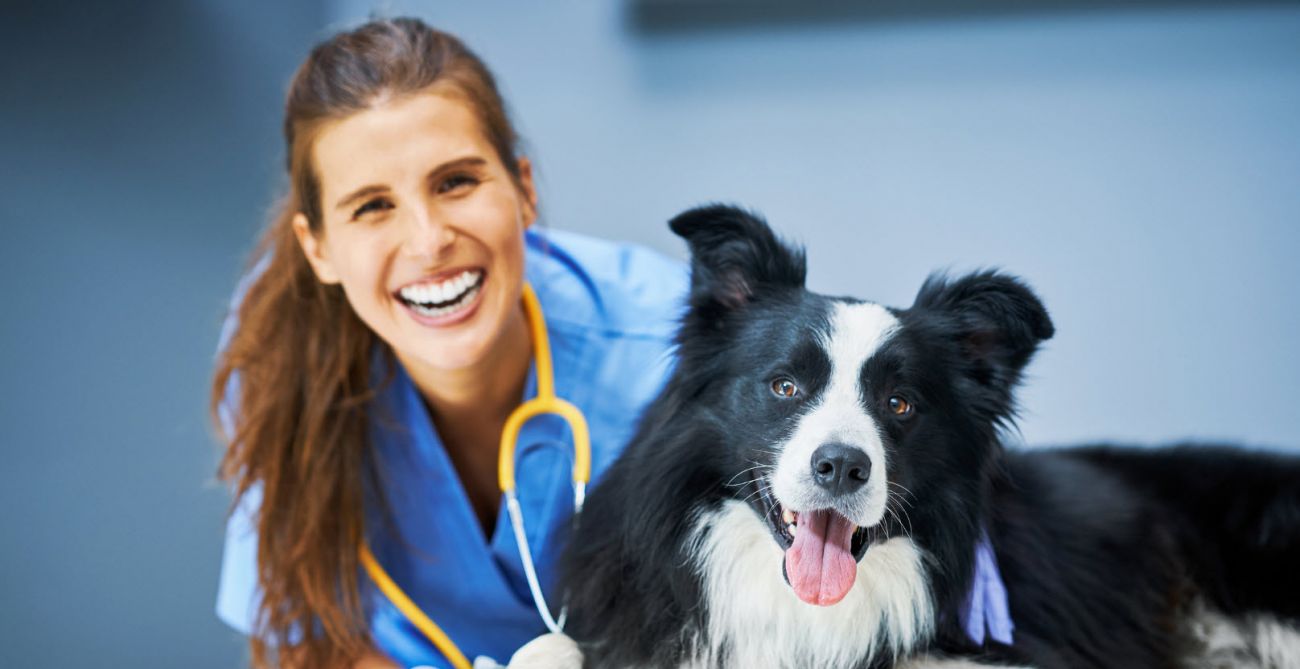What is a PEO and is it Right for Your New Veterinary Practice?

By First Financial Bank
A PEO or professional employer organization is a human resources (HR) model designed for small businesses. Is it a fit for your new veterinary practice?
When opening or buying a veterinary practice, you may be competing with larger and/or corporate practices in the same area for the best employees. This includes the essential players such as your veterinary assistant/tech, scheduler, billing clerk, and other veterinarians. So how do you compete with larger corporate practices for a great team? Good benefits are usually high on a potential employee’s shopping list and one of the reasons you may consider working with a PEO. Below is additional information on what a PEO is and some pros and cons of the model.
What is a PEO?
A professional employee organization is an outsourcing firm that can provide business services and benefits to small and medium-sized employers. These could include:
- an array of human resource consulting options, including recruitment and onboarding, handbook development, or progressive discipline procedures
- safety and risk mitigation services, including background checks and drug testing
- payroll processing and employer payroll tax filing
- workers’ compensation insurance
- health benefits
- employees’ practice and liability insurance (EPLI)
- retirement plans
- compliance assistance, and
- training and development.
How? They become the employer of record (EoR) for tax purposes. A form of “co-employer”. Your group of employees join the small groups of employees from many other businesses – and all together provide the PEO with the buying power for things like health insurance. The PEO is responsible for withholding appropriate taxes, paying unemployment insurance taxes, and providing workers’ compensation coverage. Basically, all the essential processes and services that you may not have the capacity to provide.

This fee is in addition to the other overhead costs like the employer’s share of FICA, Medicare, and unemployment insurance withholding. Although this additional cost can be more to the employer, the employees may save money by receiving benefits like health insurance at a lower cost. But costs like workers’ compensation insurance coverage may be reduced when using a PEO. With its overall larger volume of “employees” working for the PEO, they have better buying power and negotiation position than your small business.
A PEO is not to be confused with a temp agency. These two organizations are very different. Temporary help companies recruit employees and assign them to client businesses to help with short-term work overload or special projects. Those jobs are created and marketed on an “as needed” basis. PEOs, on the other hand, support a client business and the HR processes for their regular full- and part-time staff. Generally, they assume all the personnel responsibilities and handle the HR side of the business for you. They support the processes for the small business owner to hire, fire, and discipline employees. The specific responsibilities of the PEO are determined by a contract between you stating the functions and limitations of the PEO.
Benefits of Using a PEO for Veterinary Practices
PEOs may be a fit for small veterinary practices for a number of reasons. PEOs empower the veterinary practice leader with more time to manage the practice and deliver care while the PEO is dealing with the HR requirements. You focus on what you are good at – and they take care of all those processes you don’t have the time or experience to handle.
PEOs may help reduce turnover and attract the right employees. Because PEOs can offer a wider array of benefits, this may help you rise above the competition for the best skilled workers. Those competitive benefits that helped attract successful employees can also help you keep them. Reducing turnover helps keep the stress off you as the business owner and allows you to build long-lasting relationships with employees.
Potential Challenges
There are different models of PEOs that you can choose from, with many of the differences lying in the level of responsibility, services, and the risk they assume for their client businesses. You want one that fits your specific needs and at a price that makes it worthwhile. In addition, you may find that the company you’ve identified has a communication style and “culture” that may not be yours. Do your research and ask for examples. Check the reviews and testimonials. Your management styles may be so different that it is jarring to your employees.
Each PEO has different minimums for the number of employees coming from your business. Some are as low as two or three, but others require a minimum of five or more employees. If there are only four of you (and one of you gets your insurance through a spouse), you may find it difficult to reach the minimum in the beginning.
Overall costs may be beyond your budget. You may want to offer many of these services, but it may still not be financially feasible when you are starting out.
Conclusion
PEOs may be a good option for a new veterinary practice looking for a way to provide better benefits to their employees and offload some of the burdens of the HR processes. But it can also be costly and a “co-employer” may not be the best partner for your needs. Work with your financial advisor and insurance expert to help you make the best choice for your business.

Business Loan Payment Calculator: Estimate the Payments for Your Veterinary Practice/Clinic Loan
Been thinking about building, buying or refinancing a loan for your veterinary practice?

Planning to Buy a Veterinary Practice?
Looking to buy an existing veterinary practice? Take this quiz and see how much you already know – and where you might need some additional guidance as you plan to buy a vet clinic.

Veterinary Practices for Sale: 5 Questions to Ask Before You Commit
It’s time. You’ve been working for someone else – and now you are ready to be your own boss, with your own practice. You might have even checked out a veterinary clinic for sale. But before you start imagining your name on the sign above the door, there are some answers you need. Here are five of the big questions to ask – and the answers you, your partners and your lenders need to know.

Planning to Sell Your Independent Veterinary Practice/Clinic?
Planning to hang that “Business for Sale” sign?
